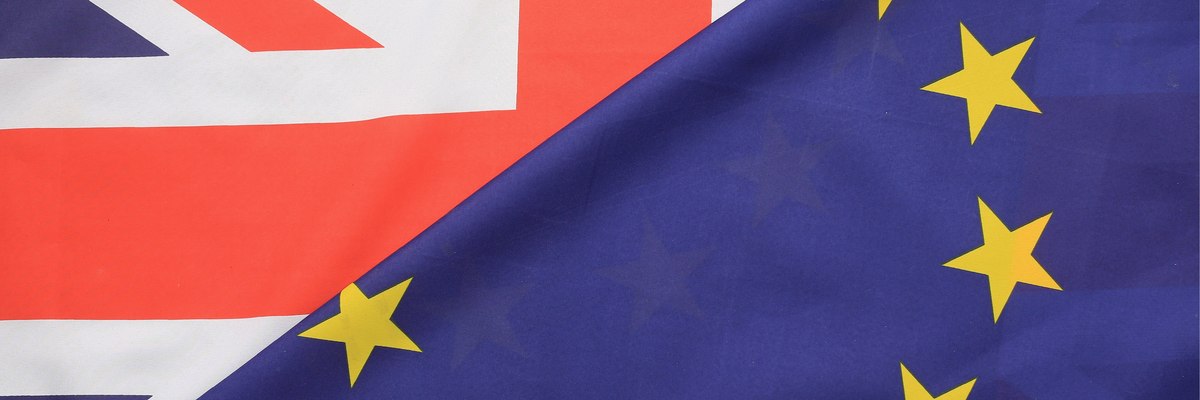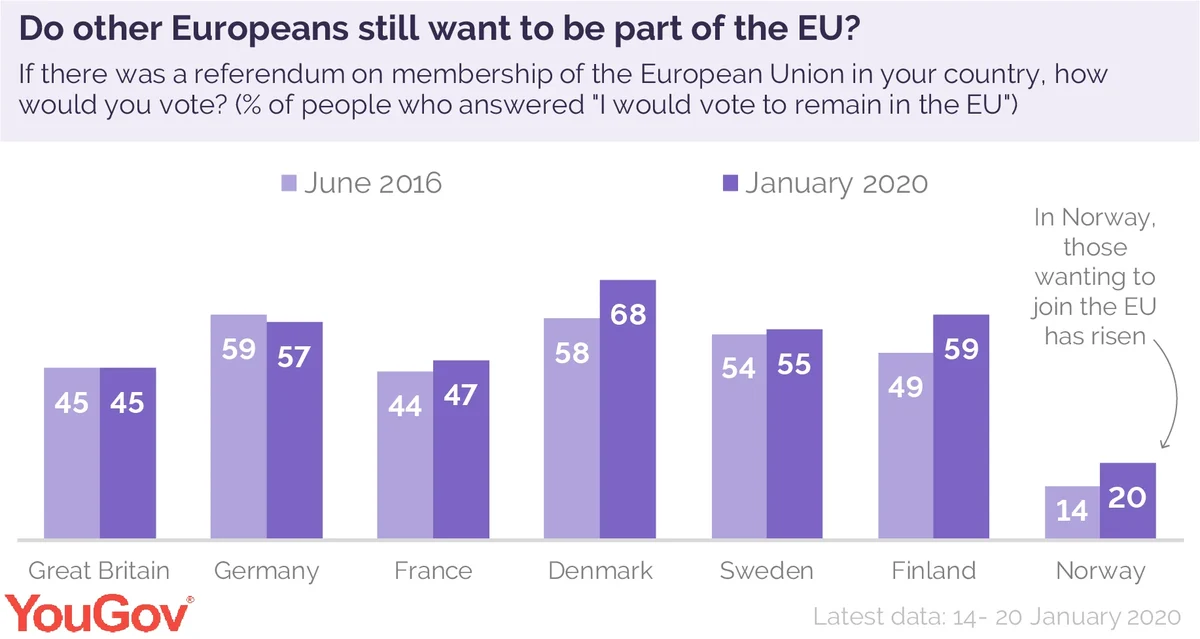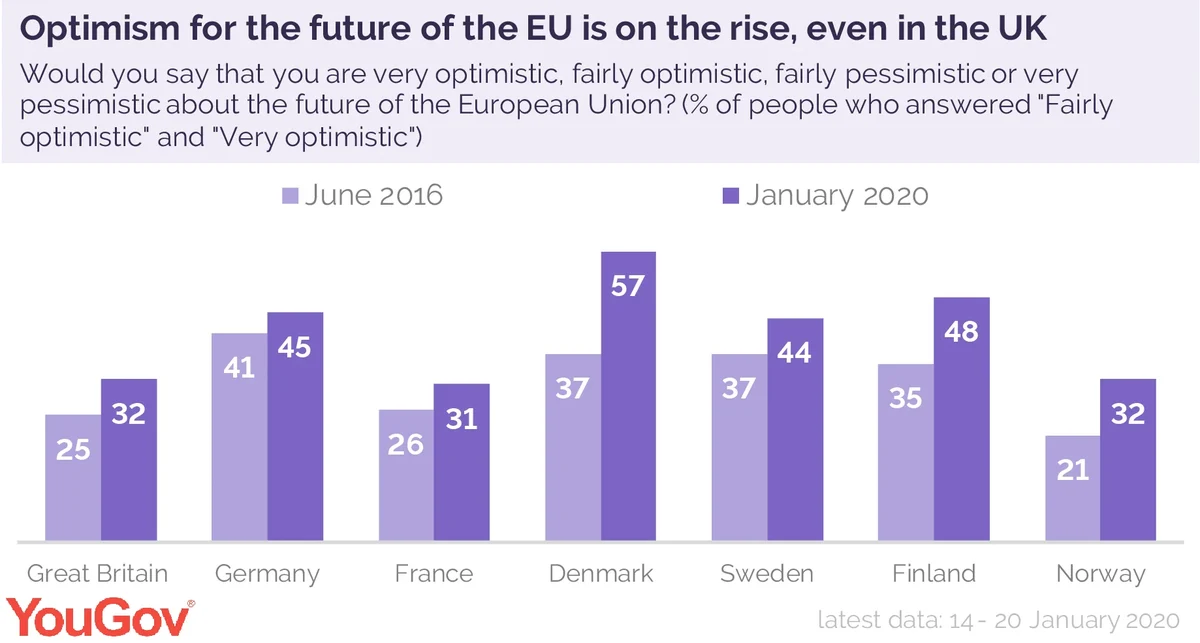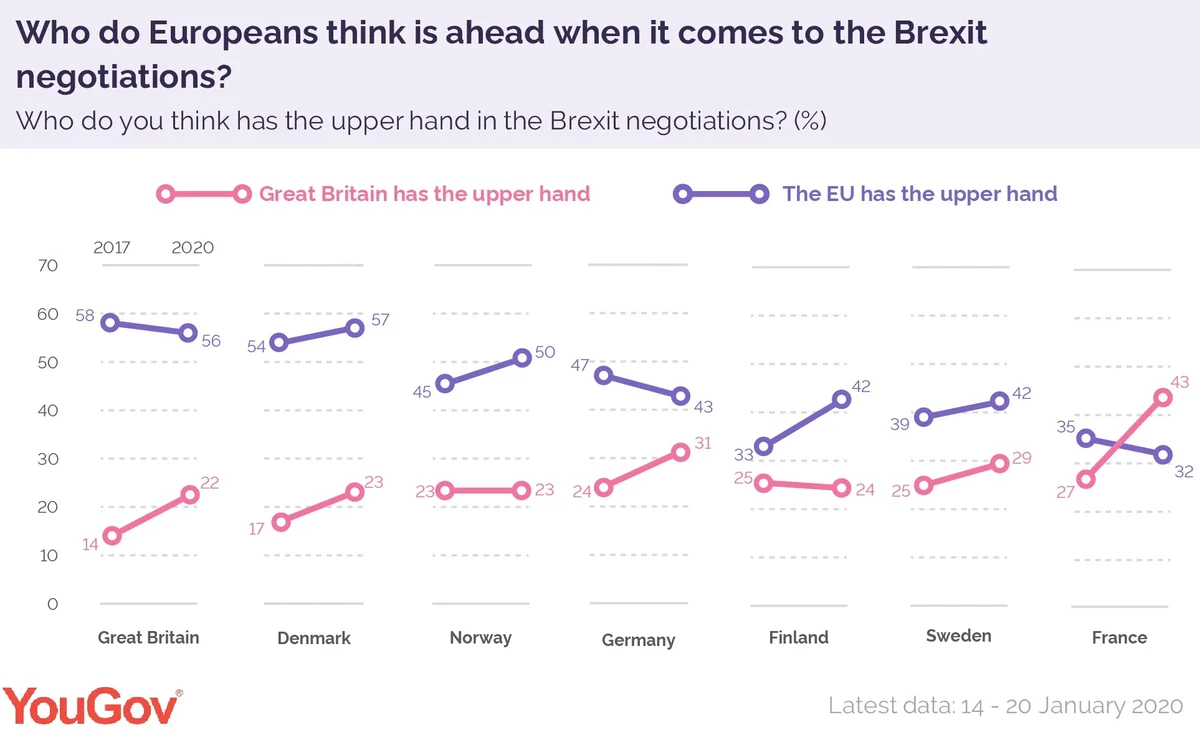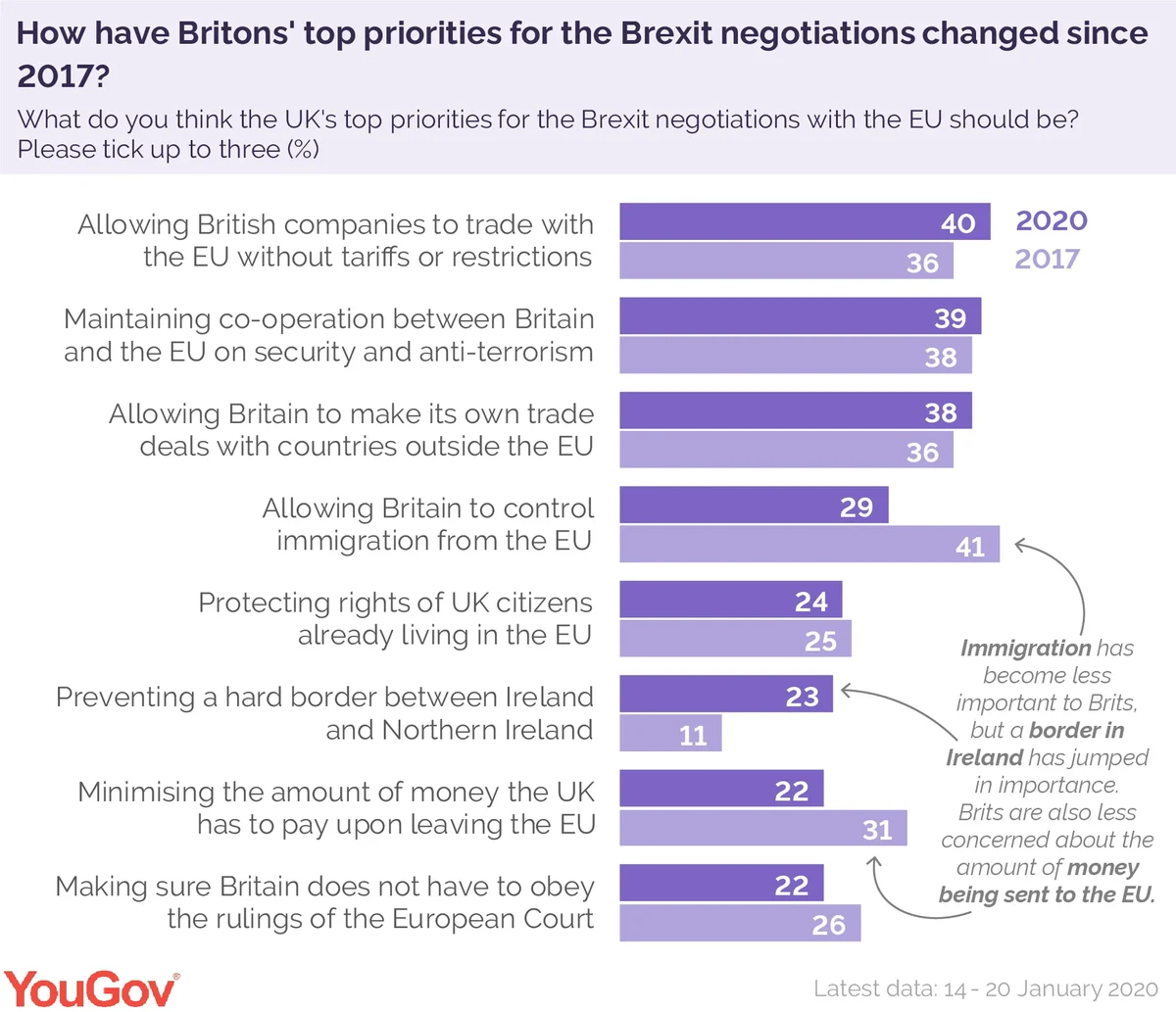A look at YouGov Eurotrack results going back to 2016 shows how opinion has changed in seven key nations
Today marks the official departure of Britain from the European Union, three and a half years after the original vote to leave. While Britain may be leaving, the results of YouGov’s latest Eurotrack study show that sentiment across a number of European countries has moved in a more pro-European direction.
Desire to leave the EU is down
Though Britons voted to leave the EU back in 2016 by a margin of 52% - 48%, asked how they would vote now sees remain lead by 45% to 40%. A further 13% said they either would not vote or didn’t know how they would vote.
Elsewhere, Denmark and Finland have experienced a rise in remain sentiment over the same time period, rising from 58% to 68% in the former and 49% to 59% in the latter. This shift in both countries comes in spite of the growth of anti-EU parties like the Danish People’s Party.
Europeans are becoming more optimistic about the future of the EU
While figures such as Nigel Farage have forecast the ‘beginning of the end’ for the EU, our survey has found that key European countries have actually become more optimistic regarding the future of the union.
Despite the country’s imminent withdrawal at the end of this month, more Britons now think the EU has a sunny future than did so in 2016 (up from 25% to 32%). Nevertheless, this group is still in the minority with 49% expressing pessimism over the body’s future.
Optimism is up across the continent as well. It has increased by the highest amount in Denmark, going from a minority view in 2016 (37%) to being the majority view now (57%). Finland and Norway have both also seen significant shifts, increasing by 13 points to 48% in the former and by 11 points to 32% in the latter.
Most countries think they have more influence in European affairs than they did three years ago
Although the UK is set to remove itself from the institutions of the EU, our survey found that the number of Britons who don’t think their nation is influential in European affairs has actually fallen since 2016, from 33% to 25%. This shift is not mirrored by an increase in the number of people who think Britain is influential, however, which has remained at 39% - opinion having instead shifted more to don’t know (11%).
Most countries studied see themselves as more influential than they did three years ago, with exception of Sweden (who remain unchanged) and Germany. The proportion of Germans agreeing that their country is influential in European affairs has actually dropped slightly, from 63% to 58%.
The French have seen one of the greatest changes, with the percentage of those agreeing that the country is influential in European affairs rising from 36% to 43%, while the percentage disagreeing dropped from 36% to 22%. These findings come at a time when French president Emmanuel Macron is seeking to give France a larger role within the EU.
French people now believe that Britain has the upper hand in negotiations with the EU
After ‘Brexit Day’ the UK will enter a transition period to negotiate the future of its relationship with the EU. Since July 2017, the proportion of Britons who think the UK has the upper hand in negotiations has increased by 8 percentage points to 22%, although the public are still far more likely to think the EU is in a stronger position at 56%.
The trend is much the same in the other European countries studied. The number of Germans thinking Britain has the upper hand in negotiations has increased from 24% to 31%, but 43% still think the EU has the better position. All the Nordic countries are similarly confident that the EU has the upper hand, with Sweden having the most confidence in the UK’s position at only 29%.
The only country to buck the trend and believe that Britain has the stronger negotiating position over the EU is France, where 43% believe the Brits have the upper hand. This marks an increase of 16 percentage points since 2017, while those believing that the EU is in a better position has fallen from 35% to 32%.
Negotiation priorities have stayed mostly consistent on both sides
Since July 2017, Brits have largely wanted to keep the same priorities in the Brexit negotiations, but there have been two notable shifts: immigration and Northern Ireland.
Asked to choose up to three priorities for Brexit from a list of eight, Britons previously placed “allowing Britain to control immigration from the EU” in the top position, but that issue has since fallen to fourth, declining from 41% to 29%. The issue of “allowing British companies to trade with the EU without tariffs or restrictions” has since become the top priority, rising from joint third place (36%) to first (40%). In second place is maintaining co-operation on security (39%) – the same position it held in 2017.
Meanwhile, only 11% of Britons listed the issue of preventing a hard border in Northern Ireland as a top priority in 2017. That figure now rests at 23%, surpassing two issues - minimising the Brexit divorce bill and leaving the jurisdiction of the European Court, which both stand at 22%. These two issues previously stood at 31% and 26% respectively, and featured heavily in the campaign to leave the EU.
It is not just Britain that has seen an increase in those prioritising the Northern Ireland border issue though, as Germany, Denmark, Sweden, and Finland have all seen increases in this area. In all four countries, the proportion of those saying the issue should be one of the EU’s top priorities has increased by 6-13 percentage points, reaching at least 20% in three of the four countries.
Northern Ireland is nevertheless a more peripheral concern, however. Most Eurotrack countries see the EU maintaining co-operation on security as the most important priority for the Brexit negotiations (ranging from 38% in France to 48% in Denmark). However, in Germany people most want to prioritise ensuring the UK pays what it owes (41%), and in Finland the top priority is ensuring that Britain does not get the rights of EU membership (42%).
See full Eurotrack results for 2016 here
See full Eurotrack results for 2017 here
See full Eurotrack results for 2020 here
Image: Getty
